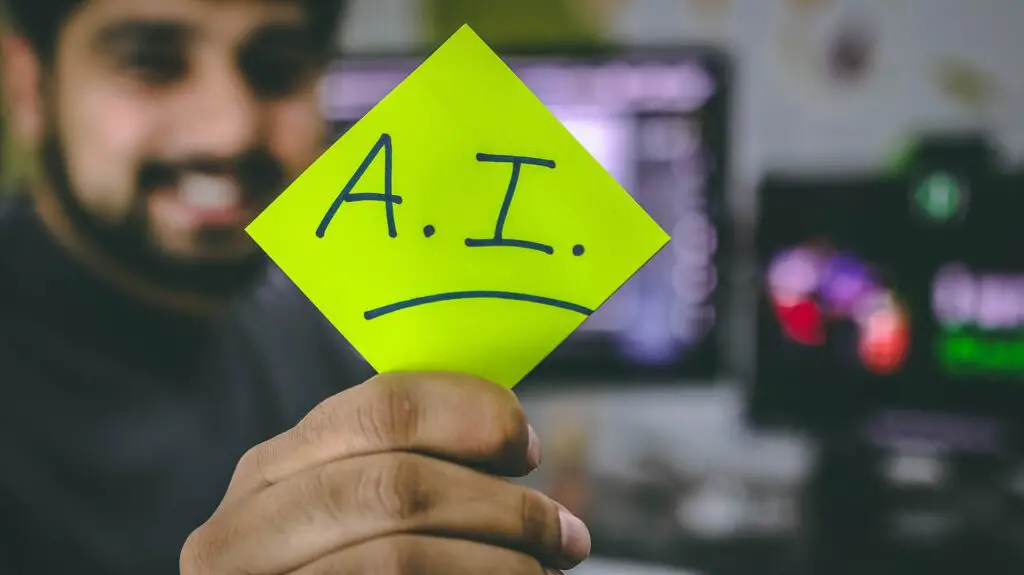Artificial Intelligence made a giant leap in 2022 with the launch of ChatGPT. The tool changed business operations drastically, saving time, reducing costs, and minimizing the dependence on the human workforce. While business owners consider it a game-changer, job redundancy emerged as a harsh reality. Undeniably, AI can enhance productivity and deliver great results if harnessed well.
Digital marketing teams are widely adopting AI for SEO and content creation. According to Salesforce statistics, AI adoption for marketers has increased to 84% in 2020 from a meager 29% in 2018. Besides the incredible increase in usage, the market value of this technology was nearly $ 16 billion in 2021. The numbers show how big this technology is.
AI opens new possibilities for SEO marketers, from getting better insights to quickly creating content in high volumes and personalizing search results. But as you explore the potential of AI for SEO, you need to understand the potential downsides. Failing to use these tools properly may land you in trouble. Awareness can help you avoid losing control and make the most of AI to improve SEO outcomes.
Let us share a few pitfalls marketers must steer clear of while leveraging AI for SEO.
Pitfall #1: Relying Too Much on AI
Using AI for cumbersome SEO tasks sounds great, but it may also get you in a fix if you rely on it too much. For instance, you may end up with plagiarized content with content generation tools. Imagine the pain of being penalized for duplicate content. You may experience a dip in your website’s ranking, which is the last thing you want to deal with.
Likewise, local SEO requires personalization, so it is another place where you can go wrong with AI. Consider the example of businesses operating in New Orleans, where low costs are the most attractive factor for startup ventures. The market is hypercompetitive, making it challenging to gain an edge. You may miss out on visibility by adopting a cookie-cutter approach to local content and citations.
The best way to stand out is by collaborating with a New Orleans local SEO agency that combines AI with a personalized approach to get the best of both worlds. A local agency knows the market well, giving them better insights into your competitor’s tactics. Here, you need to rely on their knowledge and expertise.
According to Touch Point Digital Marketing Agency, SEO success hinges on using tried-and-true measures to increase organic ranking. At the same time, using innovative tools and technologies can accelerate and improve the results. But it is crucial to maintain a balanced approach.
Pitfall #2: Not Having a Clear Goal
While tools help you by doing the heavy lifting, you cannot get results without a strategic outlook. Before using AI for SEO, set a clear goal and roadmap. Do you want to use it to identify target keywords and link-building opportunities? Are you looking for content gaps, topic ideas, or page layouts? You can even use AI to audit websites and automatically optimize content.
Knowing your goals helps you choose the right AI tools in the first place. For example, you can rely on Semrush for a lot of work, from analyzing competitor keywords to optimizing on-page factors and prospecting link-building opportunities. Having a goal also enables you to assess the performance of the tool and optimize it for the best results.
Pitfall #3: Failing to Monitor the Results
Another blunder you may commit while using AI for SEO is failing to measure results. ChatGPT can help you churn blog posts in minutes, but you cannot publish them without double-checking facts and stats. Recently, novelist Mona Awad and author Paul Tremblay filed a copyright lawsuit against OpenAI. Earlier this year, an Australian mayor raised a red flag for defamation.
As a marketer, you can imagine the ethical consequences of using the wrong content produced by AI programs. While using them for your tasks, always pay close attention to spot errors and misleading facts. Remember that human judgment and reasoning continue to be a marketer’s best friend, no matter how many tools and shortcuts they have at their disposal. Most importantly, you must train AI rather than let it override your intelligence.
The Bottom Line
Using AI for SEO is a wise move because it can help you achieve more with less and focus on tasks that require personalization with a human touch. While you shouldn’t miss out on these benefits, it is crucial to use AI tools wisely. Knowing the potential pitfalls and avoiding them can make all the difference. Also, remember that AI may not be your best friend when quality matters more than volume.









0 Comments